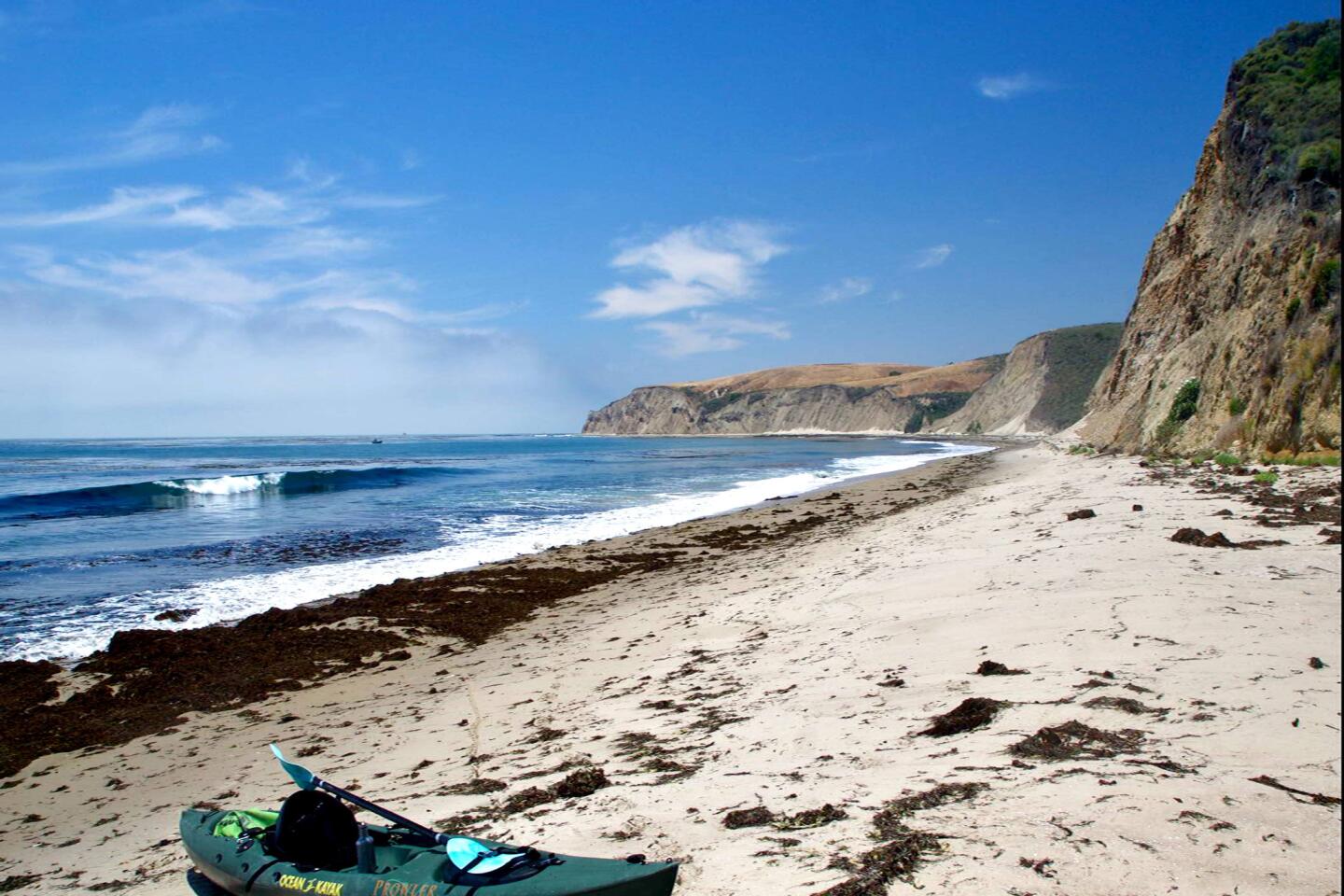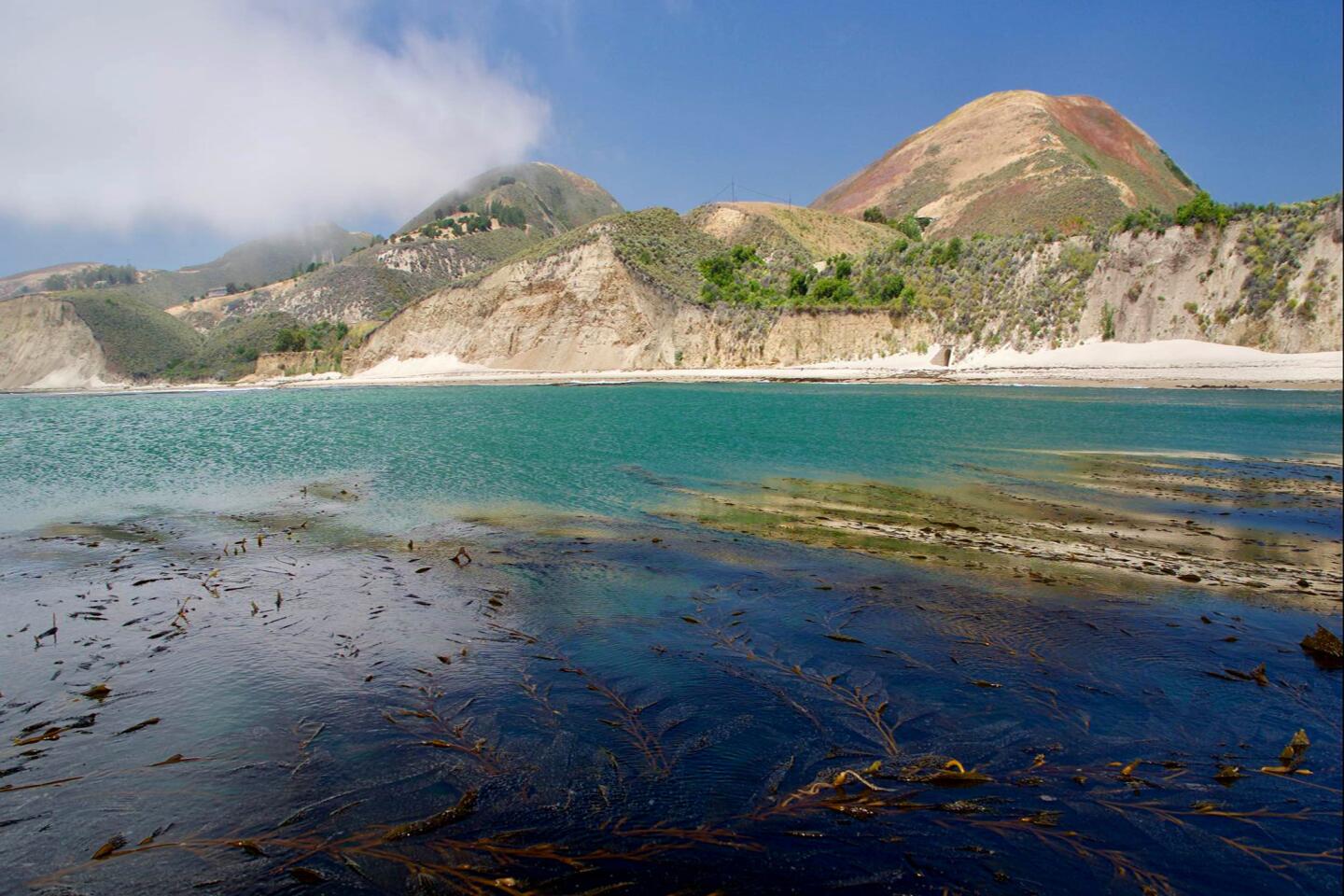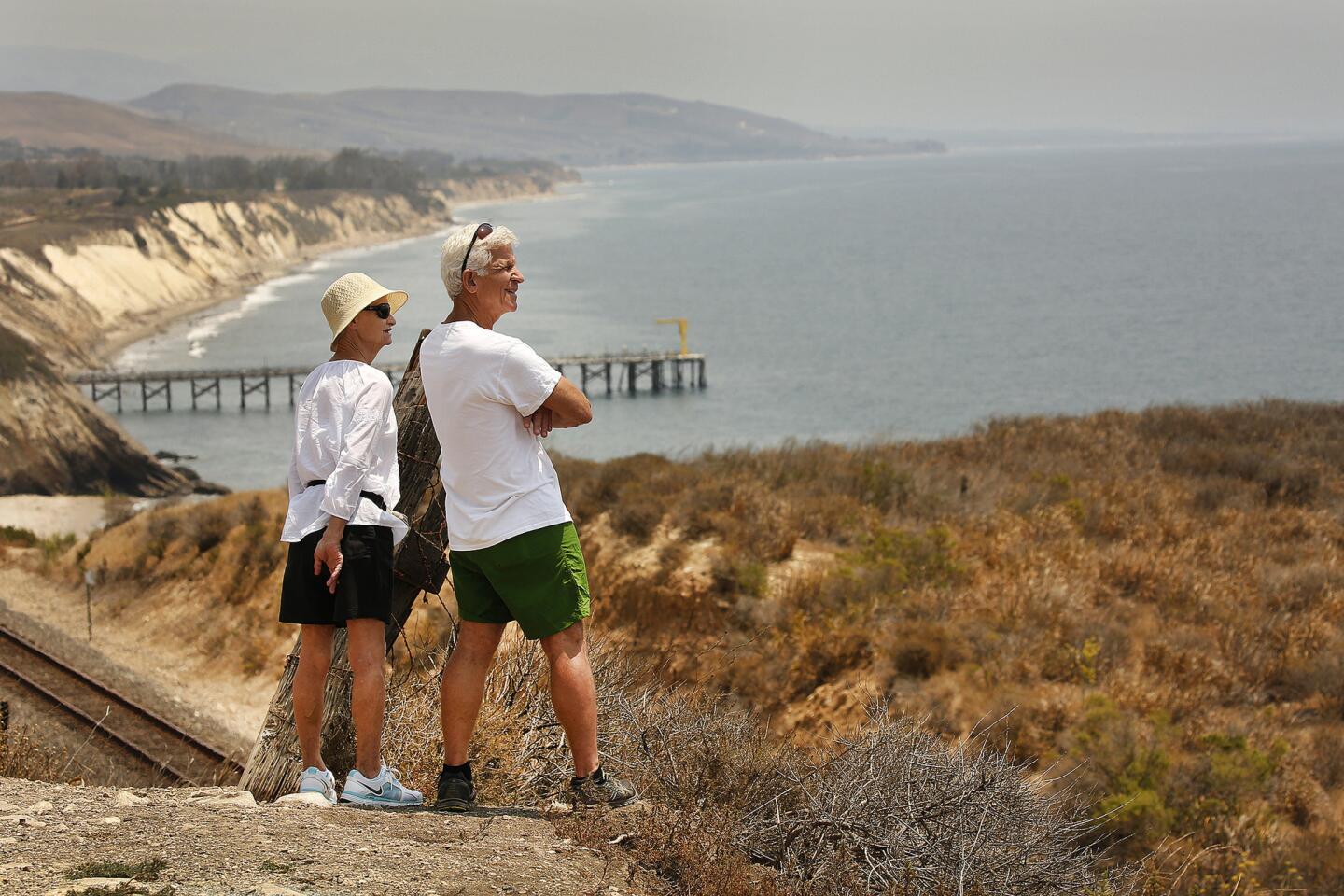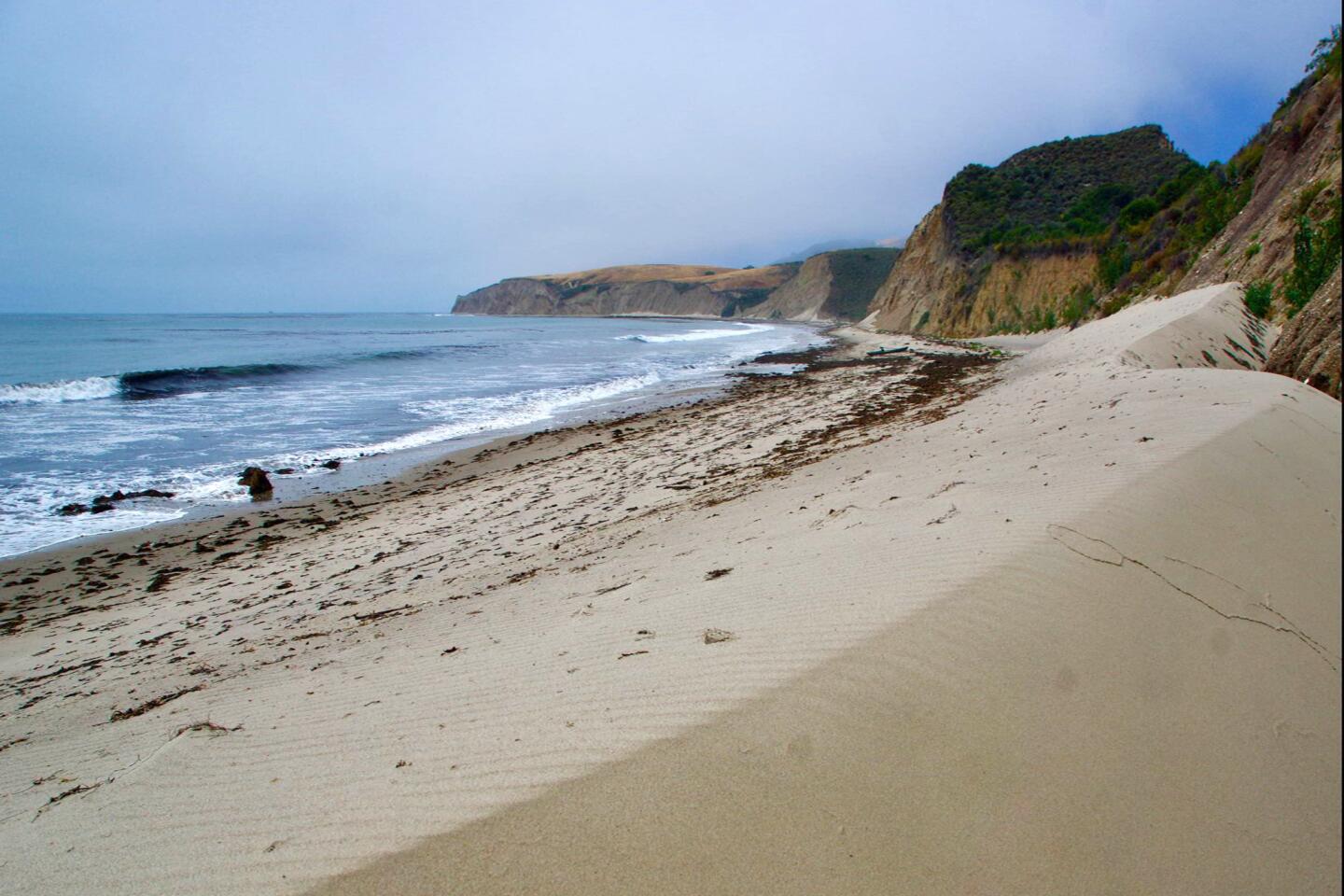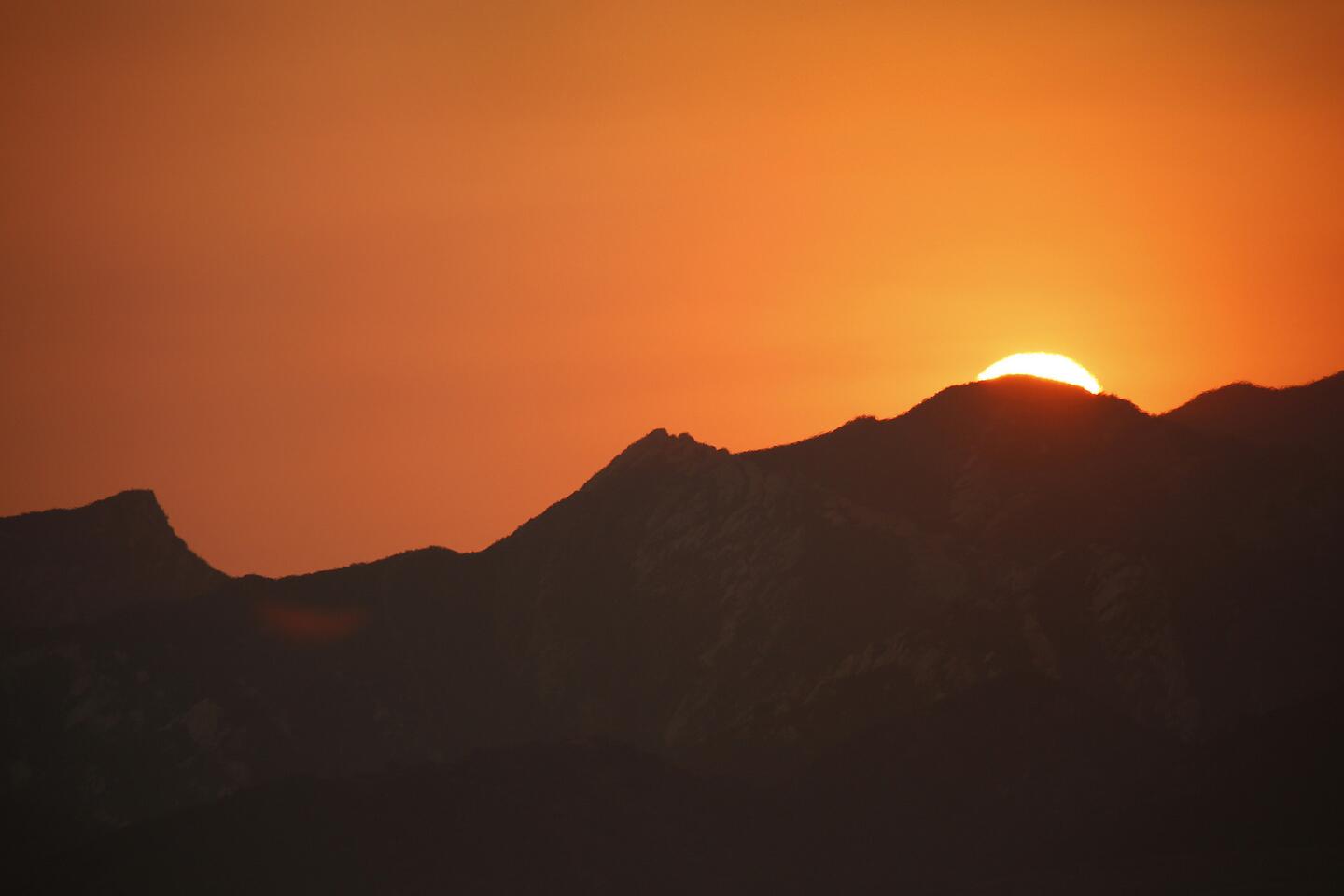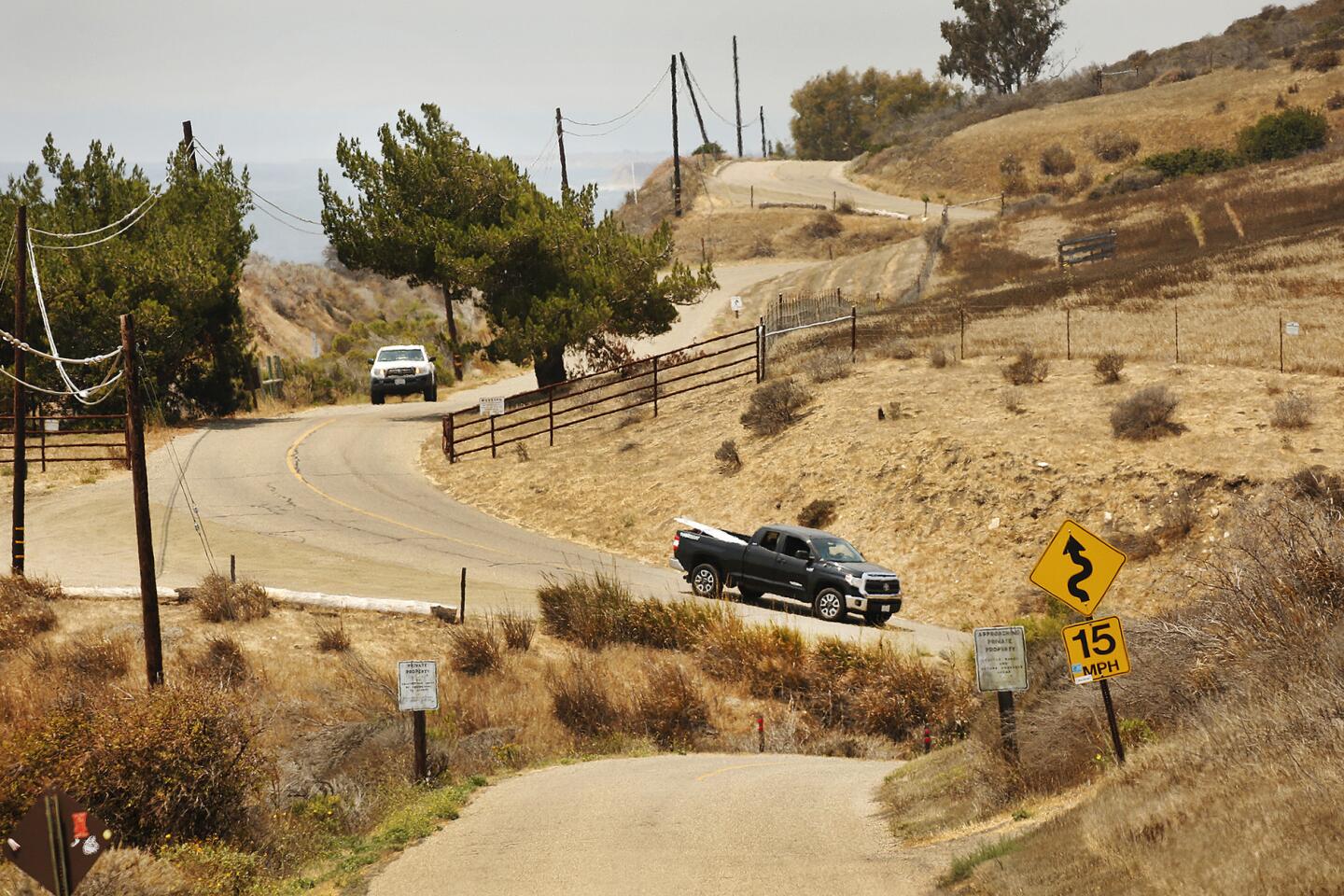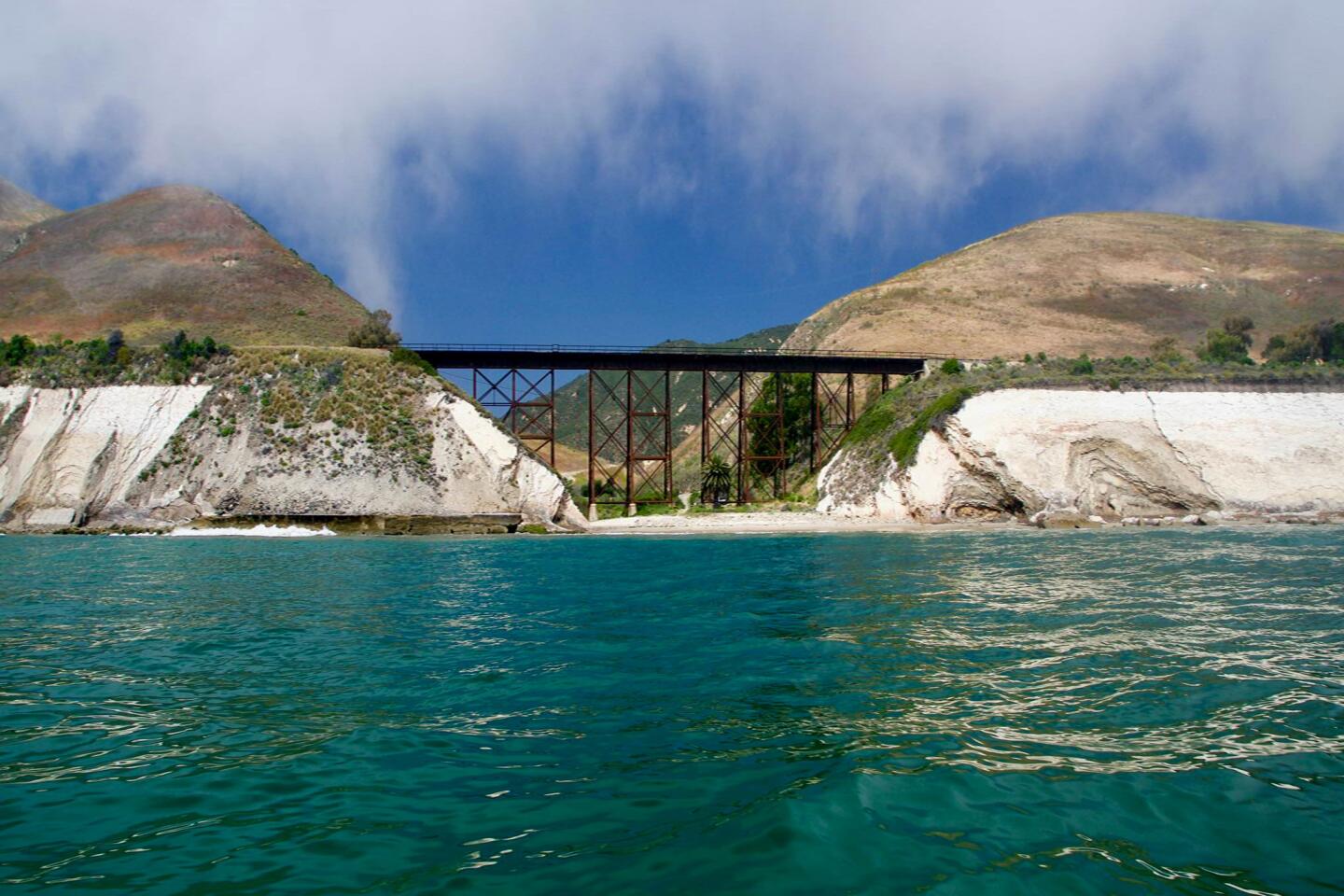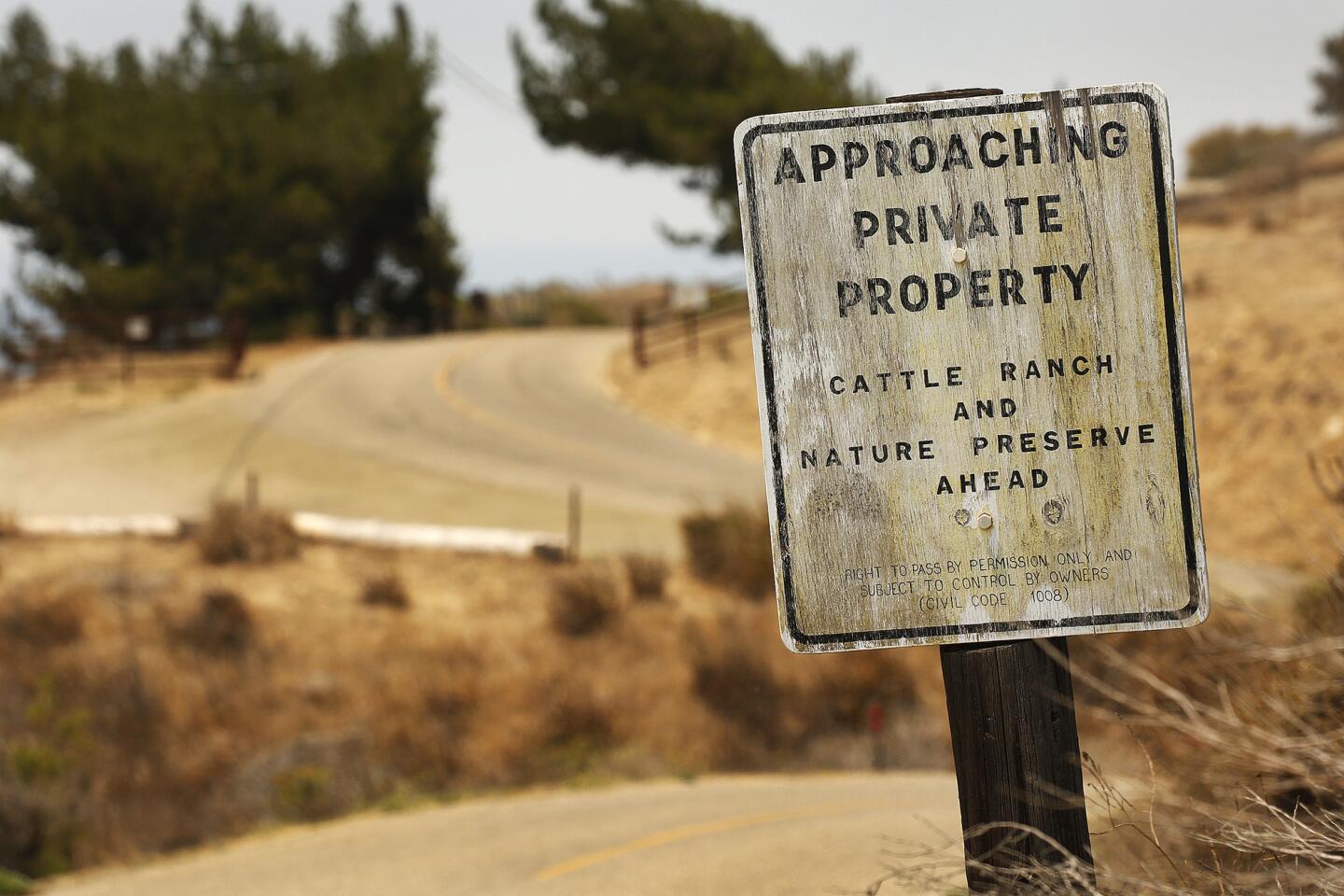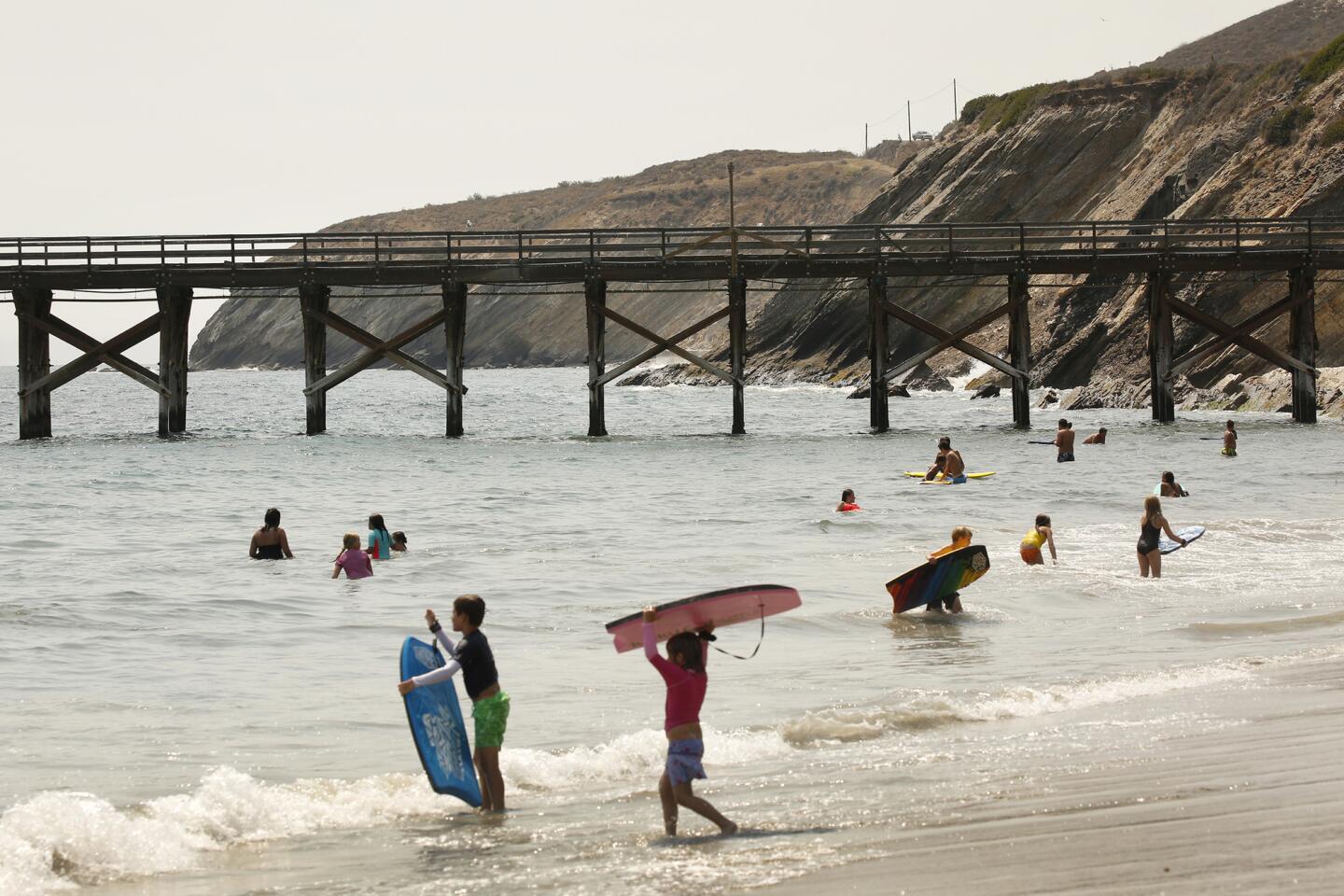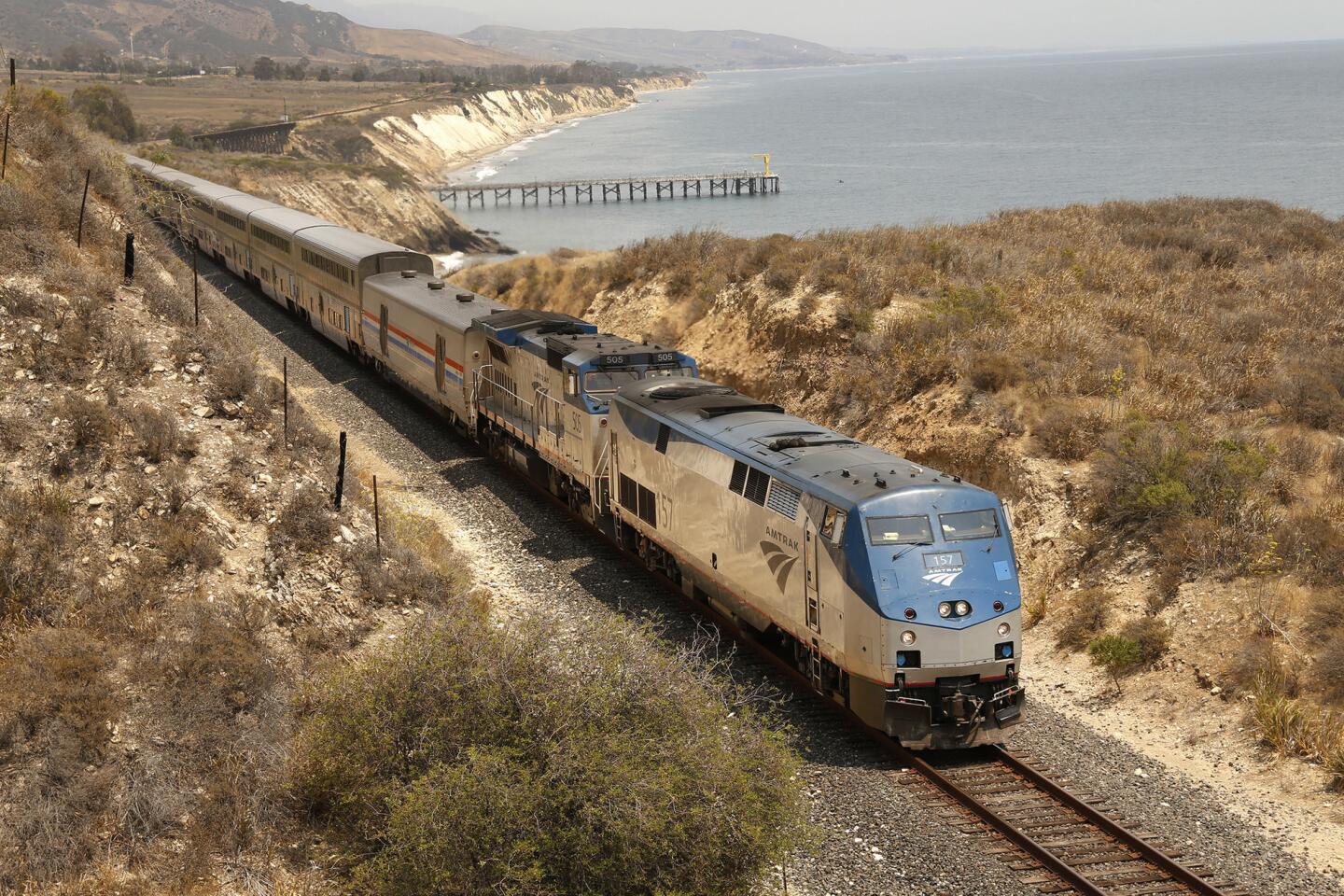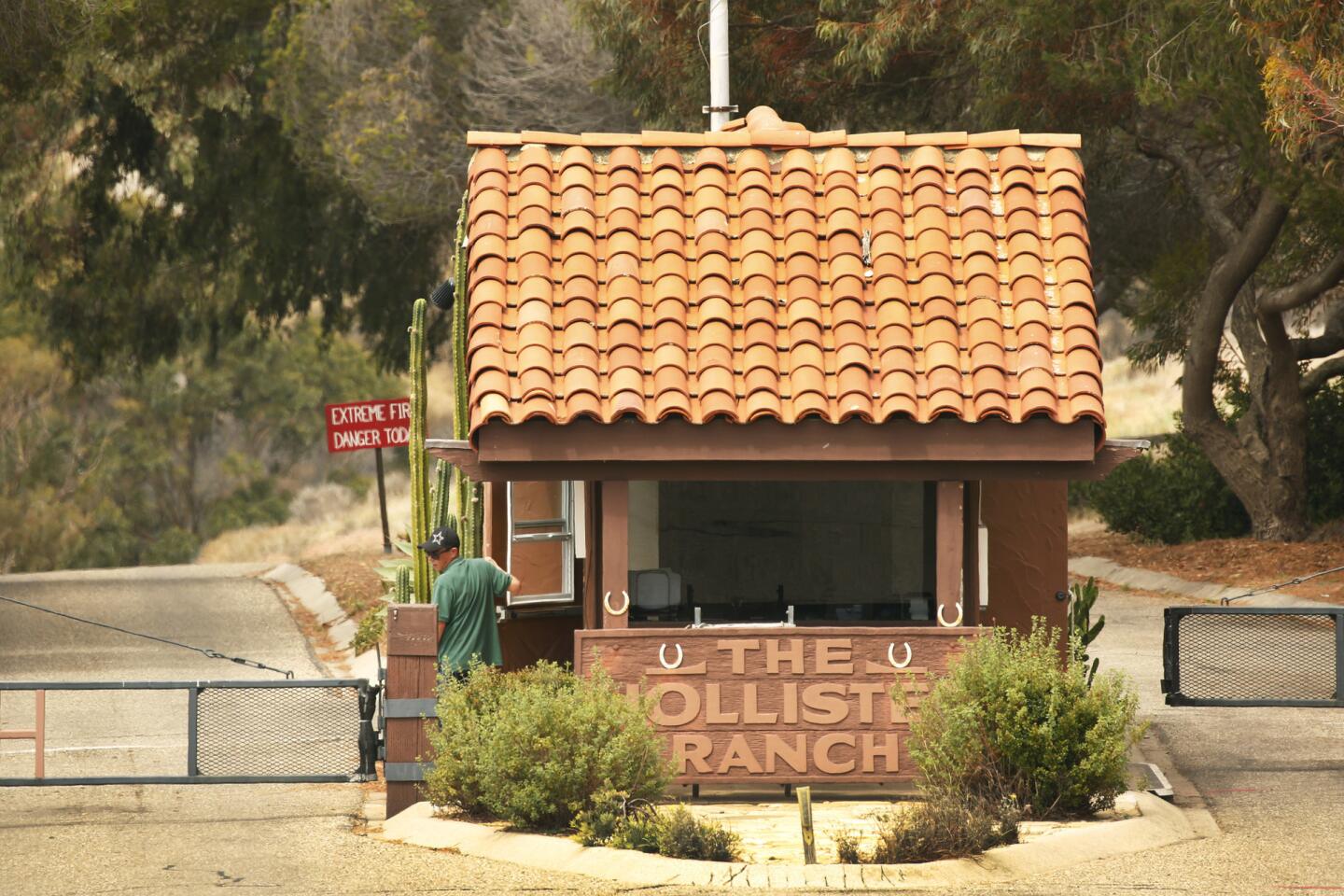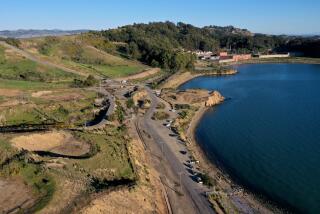It seemed like a done deal, but new efforts are underway to open Hollister Ranch to the public
Property owners for decades have fought to keep Hollister Ranch largely to themselves — and earlier this year it seemed they had won.
But mounting public outrage has fueled multiple new efforts to open one of California’s most pristine stretches of coastline.
A Santa Barbara County Superior Court judge this week allowed a coalition of community groups to challenge the controversial settlement granting access to only a set number of supervised tours or those who can paddle two miles in. Coastal officials had failed to represent the public interest, the coalition successfully argued, when they agreed to these terms behind closed doors.
Meanwhile, a California lawmaker introduced legislation that would lay the foundation for more aggressive strategies, such as acquiring private land for public use through eminent domain.
And the agency with the power to do so, the State Lands Commission, declared its support of the bill and said it has already started looking into possible ways to open Hollister Ranch to the public.
“In the last couple months, we have had so much public outcry in the state of California about this particular issue,” said Assemblywoman Monique Limón (D-Santa Barbara), who authored the bill. “I simply cannot disregard the thousands of people, not just in my district but throughout California, calling for greater access.”
The bill could help the state follow through on an ambitious public access plan held in limbo since 1982 amid numerous lawsuits from politically powerful landowners.
“It’s high time that the Legislature require implementation of what they required in 1982 and which Hollister has effectively ignored for 36 years,” said Susan Jordan of the California Coastal Protection Network, one of the groups intervening in the settlement agreement.
Read more: Coastal advocates challenge deal that bars public from reaching Hollister Ranch by land »
The Hollister Ranch Owners Assn., which represents landowners in the 14,500-acre historic cattle ranch with 8.5 miles of coastline and coveted surf breaks, criticized the legislation as shortsighted and last-minute.
In a statement, the group said the 1982 access plan would “dramatically increase human impact on a stretch of coastline that has always had limited human use, which could have irreparable effects on wildlife, habitat and cultural resources.”
“The Ranch’s biological experts believe that this obsolete plan, if implemented today, would destroy environmentally sensitive coastal habitat and resources to construct parking lots, bathroom facilities, campgrounds and camp host residences,” the statement said.
In a letter of opposition to the Legislature, the group’s legal team said the new legislation was sprung on them at the last minute — tacked onto a bill, AB 2534, that was introduced as a way to provide outdoor education grants to underserved youth.
The bill, the letter said, would also directly impact the hard-fought legal agreement forged between Hollister landowners and the state Coastal Commission and Coastal Conservancy.
“What’s the rush?” said Steven Amerikaner, an attorney for Hollister Ranch. “The purpose for this last-minute legislation is clear... to use this change in the law to argue for the settlement to be overturned.”
The bill’s supporters, which include more than 20 environmental groups, the Coastal Commission and the state attorney general, say it is a separate mechanism to obtain access and would not affect the ongoing litigation. Instead, they say, it helps remove roadblocks that have prevented public access at Hollister and provides funds for acquisition and maintenance activities, such as vans, trail construction and repairs, signs and bike racks.
The clash over property rights and public access at Hollister Ranch began about 40 years ago when a group of landowners sued the commission for requiring public easements as a condition of their development permits. Rather than providing public access ways, they ended up paying an in-lieu fee of $5,000 created by the Legislature.
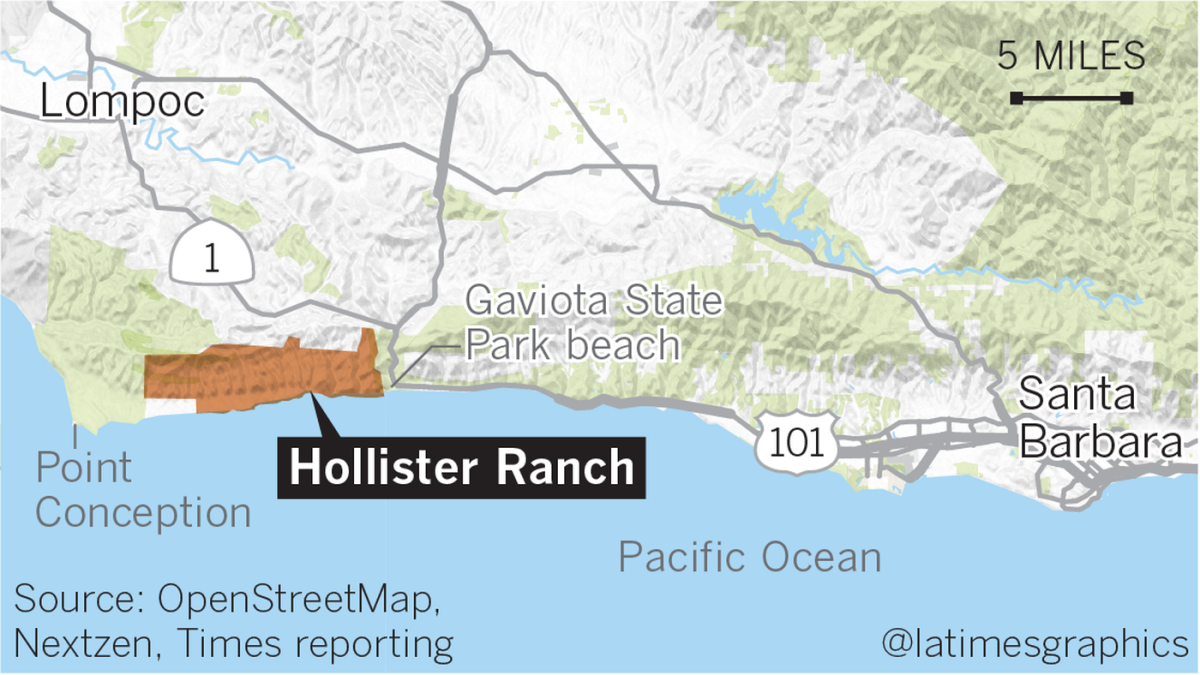
With these limitations, the state’s last shot for public access by land was its claim to a path that the YMCA had offered in 1982 as a condition of approval for a recreation center.
In the deal reached earlier this year, coastal officials agreed to stop citing their right to the YMCA offer.
Read more about the Hollister Ranch settlement »
As news trickled out, more than 1,500 people emailed the Coastal Commission lambasting the deal. Attempts to reach the beach by kayak have proved treacherous even for the most able-bodied and experienced.
Coastal commissioners have had second thoughts since the public backlash. Last week, they called on the State Lands Commission to consider using its legal authority, which includes the power to acquire private property for public use through eminent domain — a costly, complicated process that comes with its own set of legal challenges.
Other options could include land exchanges or negotiating new boundary lines.
“I’m remorseful that the Coastal Commission and the Coastal Conservancy have signed an agreement that ties our agencies’ options to improving access at Hollister Ranch. But the State Lands Commission can still save the day,” said Coastal Commissioner Mark Vargas, who implored State Lands last week to join the fight. “The details of that settlement show that in no way does this constitute reasonable public access.”
State Lands Chairwoman Betty T. Yee acknowledged those remarks and said the agency is taking the issue seriously. Staff has already begun reconnaissance and tried driving and walking the Hollister Ranch area last week.
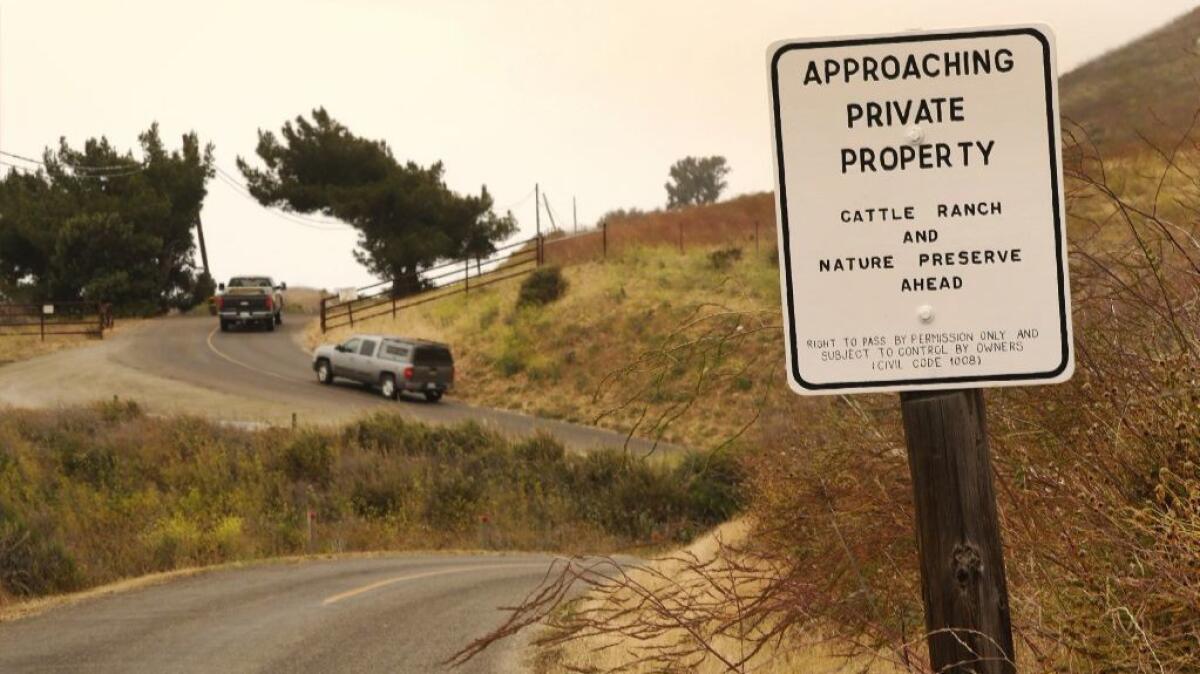
A similar strategy is playing out at Martins Beach near Half Moon Bay — another high-profile access battle that has dragged on for years.
Gov. Jerry Brown in June approved creating an account that can be used to gather money to appraise, acquire and maintain a public access way at Martins Beach.
State Lands Commission staffers have suggested a public route operated like a park — with daily dawn-to-dusk hours of operation, trash bins and portable toilets. How exactly the commission would acquire this land is still being determined.
Eminent domain has always been politically controversial, said Richard Frank, who formerly served as California’s chief deputy attorney general for legal affairs and represented the Coastal and State Lands commissions.
On the one hand, he said, the Legislature’s action this week is a statement of political will and a signal that lawmakers are “prepared to examine and potentially implement all legal means to preserve and promote maximum public access to the coast.”
On the other hand, it raises the question of whether the public should pay to acquire access to a beach that the public already technically has rights to.
“An eminent domain proceeding or a forced acquisition would be a compromise of sorts, because some would argue that the public already has these rights,” said Frank, who directs the California Environmental Law and Policy Center at UC Davis. “But that oversimplifies the situation, in my view, because the scope of public rights in both Hollister Ranch and Martins Beach are hotly contested and less than clear.”
The bill that could set this process in motion for Hollister Ranch passed a key Senate committee Wednesday and has until Friday to make it out of the Legislature. The legal battle over the settlement agreement will continue in court with a fairness hearing in November.
“The public outcry has served as a wake-up call,” said Vargas, the coastal commissioner. “There’s momentum now for everyone to work together and actually get something done.”
Interested in coastal issues? Follow @RosannaXia on Twitter.
UPDATES:
5:50 p.m.: This article was updated to clarify the history of the legal dispute at Hollister Ranch.
This article was originally published at 5:10 p.m.
More to Read
Sign up for Essential California
The most important California stories and recommendations in your inbox every morning.
You may occasionally receive promotional content from the Los Angeles Times.
